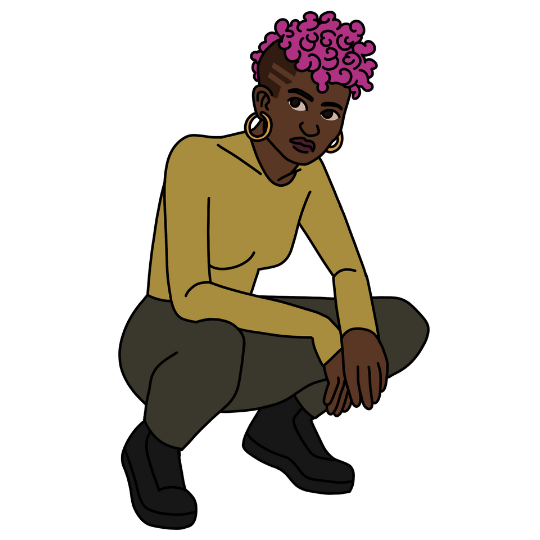‘Gamifying Wellbeing’: Designing Therapeutic Videogames to Treat Mental Illness
Posted: 26 Mar 2024My phone buzzes, making the whole table vibrate. I flip it over apologetically, so that the screen is hidden. This gesture is partly to reassure my colleague that he has my full attention, and partly to conceal the fact that slotted between the usual email notifications and calendar reminders are messages from a cute, cartoon bird called ‘Twaddles’ asking me how I’m doing today.
In fact, if I were to scroll through all the alerts I’ve received in the last 24 hours, you’d see multiple prompts from a smiley cloud inviting me to take some deep breaths, hourly check-ins from an anthropomorphic cactus suggesting that I log my mood, and announcements from The Forest letting me know that I have unspent Productivity Gems that I can exchange for Seeds of Calm*.
My phone has become a helicopter parent. It is constantly hovering in my periphery, chiming in with unsolicited advice, cautioning me against potential harms, and gently reproaching me for not taking better care of myself. It is a problem of my own creation – I installed all of these apps because I’m working on a research project about games and mental health. Along with my collaborators – the ethicist Dr. Gabi Pavarini and the clinical psychologist Dr. Lindsay Smith – I’m putting together an extensive review of the academic literature written about the ethical implications of using digital games as therapeutic interventions, and so I wanted to get a first-hand look at what is currently available in the rapidly expanding ‘digital mental wellness market’.

I know from my own experience and from listening to the experiences of other gamers that video games can be fantastic tools for mood repair, stress relief, and anxiety management. During the height of the Covid-19 lockdowns, we saw more and more people turn to digital games to meet their basic psychological needs. Like all coping strategies – from drugs to exercise – the misuse of (or overdependence on) video games can be detrimental to our mental wellbeing. But after decades of negative discourse around gaming and mental health, researchers are now trying to harness the restorative power of video games to optimise mental wellbeing.
And…the results are mixed. While there are some studies that explore the positive effects of commercial-off-the-shelfs (COTS) games on our emotional health, most researchers focus on custom-made games designed to deliver clinically proven interventions, such as cognitive behavioural therapy (CBT) or guided breathing exercises. My general sense is that although these purpose-built apps have all the trappings of digital games – they have collectibles and score boards and win streaks and customisable avatars and hot spots to tap – they just aren’t very playful. A microwave is digital and interactive. An ATM machine is digital and interactive. What I’m saying is, buttons and a screen and beep-boop noises doth not a game make…
The lack of playfulness in these so-called games is disappointing – not least because many adults are starved of opportunities for play. Analogue forms of play (especially role-play and other kinds of imaginative play) have long been used by therapists to help clients process difficult experiences, gain self-knowledge, and experiment with alternate ways of being. But when perusing the digital mental health market, I found that while Points, Badges, and Leader Boards abounded, imaginative play was notably absent.
What worries me most about Twaddles the bird, the smiley cloud, and the anthropomorphic cactus is that the gamification strategies they use to ensure adherence to self-care activities are disturbingly similar to the techniques employed by the worst kinds of extractive, pay-to-play mobile games. These exploitative games rely on Skinner-box mechanics to coerce players into spending more money (or more time) whilst playing than they would otherwise. Is it ok to use these same manipulative devices (such as scheduled rewards, ‘streaks’, a glut of notifications, and so on) in the service of encouraging healthier habits? Do the wholesome ends justify the dubious means?
When I’m feeling particularly cynical, I’m tempted to accuse some of these mental health apps of ‘wellness washing’. Just like green-washing (using ideas about sustainability to sell stuff) and pink-washing (using the language of LGBTQ+ inclusivity to sell stuff), ‘wellness washing’ uses the rhetoric of self-care to sell stuff. Does buying Twaddles a new beanie hat in the in-game store really improve my mental state? Does spending rainbow tokens to speed up my cacti growth send the right message about stress management? Even when we’re not talking about using a real currency, these kinds of motivation systems follow the same consumeristic logic that implies we can buy our way to better mental health.

The review I’m writing with Gabi and Lindsay is about the ethics of using video games in therapeutic settings. We’re not just interested in the question ‘does it work?’ – which is, of course, very important – but also in the bigger questions, like ‘what are the societal, political, and economic implications of gamifying mental health?’ So far, we’ve found that many studies enthusiastically emphasise how cheap, accessible, appealing, discreet, and convenient video game interventions are, without really pausing to reflect on why vital mental health services in the UK have become so dangerously underfunded, inaccessible, intimidating, stigmatised, and inconvenient.
We are living through a mental health epidemic. In this context, mindfulness apps feel like a techno-utopian sticking-plaster approach to a much deeper, more complicated problem. By that I mean, valuing an intervention because it is ‘cheap, discreet, and convenient’ implicitly endorses the same individualistic, neo-liberal, capitalistic value system that causes many of us to feel so overwhelmed, disconnected, and isolated in the first place. Stress, loneliness, and unhappiness should not be pathologized, individualised, and privatised: they are systemic problems and require systemic solutions. What would a mental health app look like if instead of trying to treat and manage an individual’s symptoms, it attempted to address the systemic causes of mental illness? As rules-based media, games are amazing at simulating systems – wouldn’t this be a perfect use of their unique affordances?
As I scroll back through my notifications, trying to distinguish between the ‘important’ alerts and spam, I think about how radical it would have been if Twaddles had genuinely invited me to play. And I mean invited me to be truly playful, in that subversive, expressive, unruly, goofy, uninhibited, spontaneous, surprising, experimental, imaginative sense of the word. I believe that video games have therapeutic potential, for the same reason that I believe that poems and paintings and dance and films have therapeutic potential: they can make us feel seen, they can show us new perspectives, they can bring us joy, offer us catharsis, and give us hope that there is some meaning in our suffering after all. But unlike these other media, games are first and foremost structures for play. And play is so much more than competition, mastery, and the zero-sum logic of winning or losing that is implicit in the classic Points, Badges, and Leader Boards design schema. Play can take us back to a child-like state of multiplicity – the magical, liminal realm of ‘what if?’ – reminding us that other worlds and other systems and other selves are possible.
*Details slightly tweaked so that I’m not sued by any mental health app!
Written by Emma Reay, Trustee at Safe In Our World

